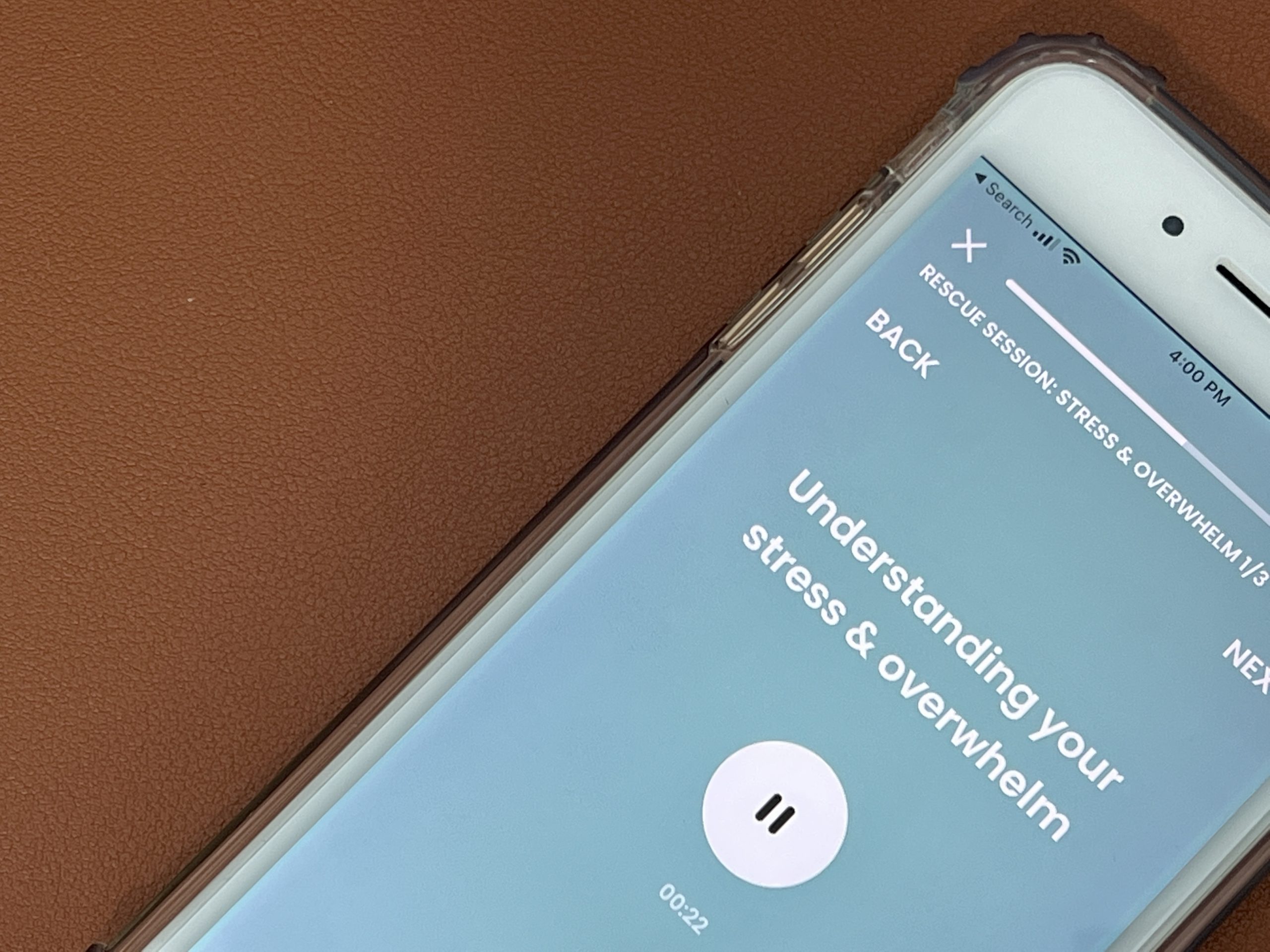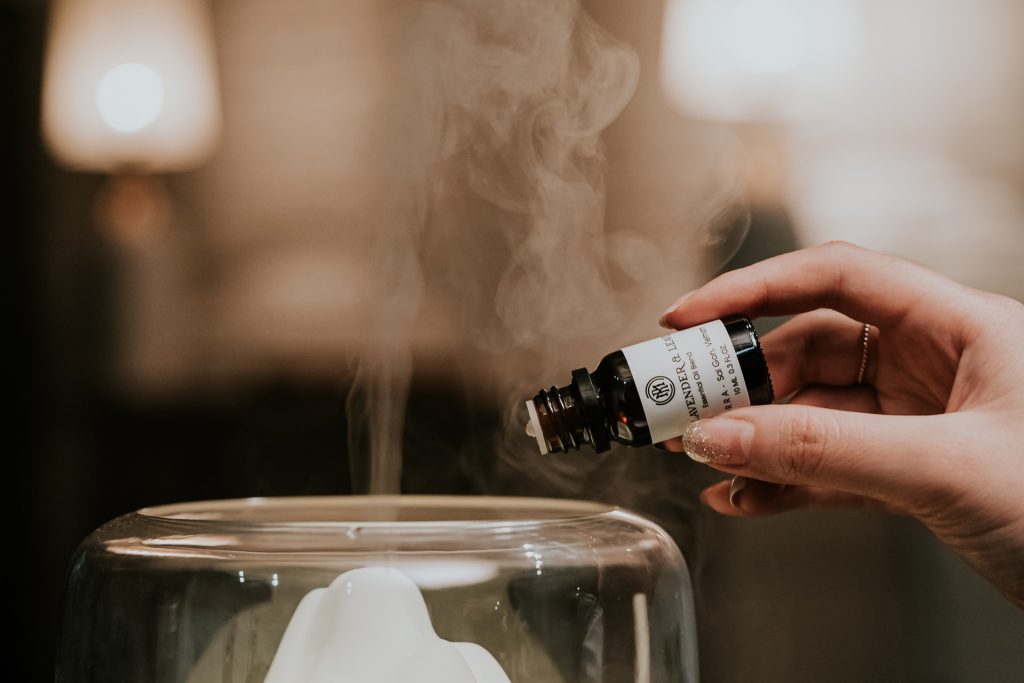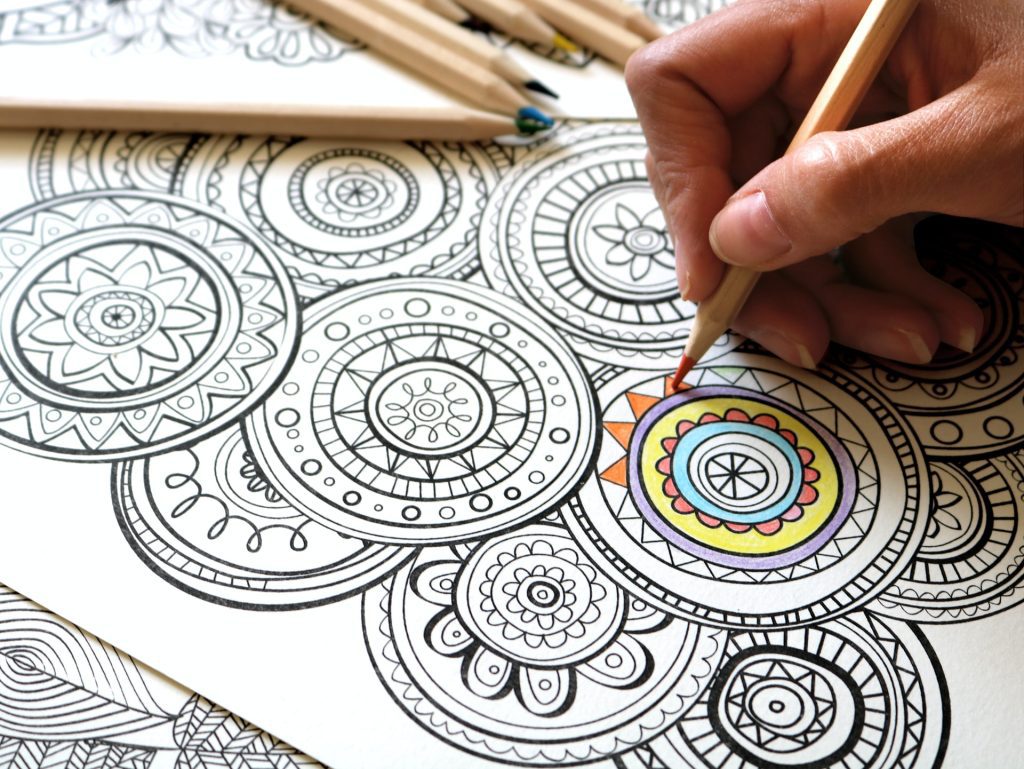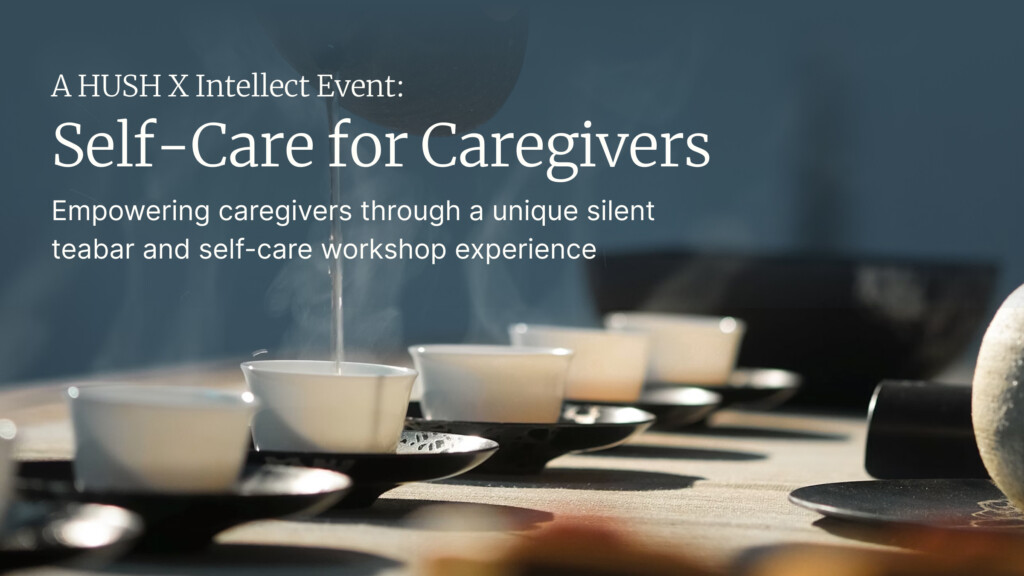As the saying goes, “When life gives you lemons, make lemonade.”
We all have our good and bad days. On particularly rough days where nothing seems to go well, we often find ourselves exhausted to the core and overwhelmed by the barrage of commitments we have in life.
At times like this, it is crucial to take some time off for self-care so that you are able to recover and heal, both mentally and physically. Everyone needs a pick-me-up every now and then.
And if you are an employee that has been in the workforce for some time, I’m sure that you have had your fair share of burnout, especially given the major workplace transitions that we have been experiencing after the onset of the pandemic. Regardless of your position in the company, self-care has never been more relevant.

In 2021, the American Psychological Association Work and Wellbeing Survey found that 79% of 1501 employees fro In Singapore, a survey by EngageRocket revealed that a quarter of the workforce has experienced “low mood, anxiety, and loneliness more than usual”. One in six workers said they felt stressed, and 22% of employees in consumer industries found their stress levels to be “unacceptable”.
Over the past three years alone, the rate of burnout has increased so dramatically that the World Health Organisation (WHO) labelled it as an “occupational phenomenon” in its 11th Revision of the International Classification of Diseases (ICD-11). Taking care of one’s mental health is thus a key step to ensuring better employee wellbeing and work performance.
In this article, we have prepared an extensive list of actionable tips to enhance your mental wellness and lift your spirits. Regardless of whether you’re struggling with your mental health or trying to improve your personal wellbeing, you’re sure to find something here that will help you achieve your goals!
Here’s our ultimate list of 60 self-care tips that you can try to improve your mental health, not organised in any particular order. If you’re not sure where to start, try picking one at random—any action is better than none.
1. Spend some time on the Intellect app
We’d be remiss if we didn’t mention our own app!
Intellect offers a diverse range of targeted learning paths and rescue sessions that would provide users with the help and support that they need to overcome difficult times.

Download the iOS or Android app if you haven’t already, and get started on your journey to a better self.
2. Listen to your favourite playlist
Research shows that music brings forth an abundance of psychological benefits.
To name a few, it helps to improve cognitive performance, reduce stress, and emotional expression. Other than that, music also stimulates the release of dopamine, our brain’s happy chemical, which generates the feeling of pleasure.
When you’re feeling down, listen to your favourite song or album, and let the music wash the blues away.
3. Listen to radio or podcasts
Various topics of interest, including mental health and self-help, are discussed in podcasts and radios. Listening to podcasts is a great way to learn solutions that help you deal with negative emotions and find support outside of therapy.
Feel free to try out one of the following podcasts here if you ever feel like you need a helping hand.
4. ASMR
ASMR videos have been all the rage lately. Autonomous sensory meridian response, more commonly known as ASMR, refers to a tingling sensation that spreads throughout one’s body after exposure to various audio and visual cues.
Aside from the satisfaction that viewers might feel from hearing the crunches of food or the scraping of a pencil against paper, research has shown that ASMR helps to promote relaxation while alleviating stress and negative emotions.
5. Binge-watch your favourite shows
It takes a lot for one to resist the urge to click on the “next episode” button while binge-watching television. And that might be a good thing.

According to C. Vaile Wright, Ph.D., Director, Research and Special Projects at the American Psychological Association, watching TV can “decompress and fill your tank back up […] It can evoke the emotions that make you feel better.”
Sometimes, there’s no need to feel guilty if you spend a little more time in front of the television!
6. Create a skincare routine
Skincare regimens are more than just surface-level concerns that help one achieve that healthy glow.
Research by skincare brand Rodan + Fields shows that the incorporation of a three-step skincare routine into your daily life can greatly reduce stress and relieve symptoms of negative mood.
Try spending some time to engage in some self-indulgence and create a simple skincare routine, if you haven’t already, to treat your skin to some goodness.
7. Light a scented candle
No self-care ritual is complete without scented candles. Aromatherapy has been proven to be effective in reducing anxiety and stress.
According to psychotherapists, the fragrance of scented candles activates soothing feelings in our brain by stimulating the release of emotion-regulating hormones such as serotonin and dopamine.
Therefore, lighting up scented candles often invokes a sense of blissful calmness within us.
8. Getting a good night’s sleep
It’s common knowledge that sleep is extremely important for our health, but most of us don’t get adequate amounts of rest.

Mental health is more heavily linked to sleep than you might expect it to be. Poor sleeping habits are a major contributing factor to the exacerbation of existing mental health problems.
The National Sleep Foundation recommends adults get seven to nine hours of sleep per night, so make sure to fill in those hours of rest.
Find out more about how to improve sleep quality, especially when working remotely.
9. Read a book
In the current era of digitalisation, many tend to favour looking at screens over paper.
However, studies have shown that reading improves our empathetic thinking abilities, mental acuity, and helps to relieve stress.
Put away your electronic devices for an hour or two, and spend some time reading instead. To start with, you can check out this list of self-improvement books that we’ve put together.
10. Go off the grid
Spending too much time on social media can be extremely taxing on our minds.
Constant use of social media can result in repetitive comparisons, reduced sleep quality, and increased susceptibility to depression and anxiety.
Whenever you feel overwhelmed, it might be a good idea to go offline and enjoy living in the moment.
11. Essential oils
Other than scented candles, essential oils are often used as adjunctive treatments for many mental health conditions.

Lavender, ginger, and bergamot are some scents that are the most effective in relieving anxiety and improving mood.
Try inhaling some essential oils or using them with a diffuser to give your body and mind the relaxation that it deserves!
12. Confide in a close friend
Self-expression is an excellent practice of wellness that helps us vent the negative thoughts and emotions that we might have bottled up within us.
Sometimes, all you need to do is take the first step by reaching out to a close confidant that you trust. Share anything that you might have on your mind within comfortable boundaries, and you’ll find yourself feeling a lot more lighthearted.
13. Enjoy some time with family
Family tends to occupy a special place in our hearts. They are some of the closest people to us that will always accept us for who we are. After growing up, we are often so caught up with work or other commitments that we end up neglecting them.
Whenever you’re feeling low, make sure to recharge yourself and discover new joys by spending some family time.
Read more about how companies in Southeast Asia are supporting their employees to have more quality time with their families.
14. Reach out for help
If you don’t feel comfortable confiding in your friends or family, reaching out for professional support might be the best course of action.
There are many helplines that provide 24-hour crisis counselling, access to support groups, and suicide prevention services.
Put yourself first and make a positive change today.
15. Meditation
Meditation consists of mind-focusing practices that confer plenty of psychological benefits.
Meditative practices have been shown to improve one’s concentration, self-awareness, promote emotional regulation and relaxation through the development of mental awareness.
If you’re looking for a way to reduce your pent-up stress, make sure to give guided meditation and imagery a go.
16. Go for a jog
Physical exercises have many health benefits. Engagement in physical exercise stimulates the release of the human body’s mood-regulating hormones, endorphin and serotonin, thus elevating positive moods and alleviating tension.

In particular, running or jogging have been associated with improvements in symptoms of anxiety and mood disorders.
17. Go on a hike
Forget about all your heavy thoughts by going on a scenic hike or just travelling somewhere on both your feet.
Take a breather by going outdoors every now and then to lose your negative emotions, and enjoy all the beauty that Mother Nature has to offer!
18. Aerobic exercises
If you aren’t a fan of intense exercises, try doing light aerobic exercises such as yoga or pilates.
Both activities boast plenty of beneficial psychological and physical outcomes by improving one’s flexibility, strength, balance, and mental awareness.
If you’re seeking better mental clarity and physical health benefits, it might be a good idea to incorporate yoga or Pilates into your daily routine.
19. Do nothing
In the current day and age, where everyone seems to be striving for self-improvement and making the most out of their time, we often get caught up in the culture of toxic productivity.
The stress of keeping work in mind all the time is extremely detrimental to our mental health.
Sometimes, the best way to rest is to do nothing at all. We all deserve a breather once in a while, so sit back, relax, and let your mind rest.
20. Count your blessings
As the saying goes, “Count your blessings, not your troubles.”
We tend to dwell so much on our negative thoughts and emotions whenever we’re feeling down that we forget about how much we actually have.
Take some time to list down some of the things that make you happy or you’re grateful for, and this will help you to view things in a more positive light.
21. Practice mindfulness
Mindfulness comprises calming techniques such as meditation, grounding, breathing, and yoga, that aim to channel one’s awareness to their thoughts and feelings of the present.

According to the Mental Health Foundation, this helps with emotional regulation and the management of anxiety or depressive symptoms. Try practising some Mindfulness every now and then to be more in tune with your emotional state!
22. Do something for yourself
We often forget how important we are to ourselves. It’s crucial for us to practice self-compassion by doing something for ourselves every now and then.
Watch that movie, buy yourself that dress you’ve been eyeing, go to the spa—do something that brings a smile to your face.
We deserve to be treated well, so make sure to acknowledge your small victories and reward yourself for them.
23. Spend some time with a furry friend
Our pets can often be our best companions since they’re always there for us whenever we need them.
Studies show that spending time with pets imbues us with a sense of purpose, which helps with presentations of anxiety and depression.
Spend more time with your pets, or visit a pet cafe if you don’t have one, to get your mind off all the stress.
24. Journaling
Journaling acts as an excellent tracker for our thoughts and feelings as well as an emotional outlet.

By writing down everything that we’ve encountered and felt in a day, we’re able to release our stress and recognize the cues that trigger negative behaviour, thoughts and emotions within us, which might help us to find ways to cope with them better.
If you aren’t a fan of writing on paper, make sure to try out the digital journaling function on Intellect, which aims to help users keep track of their daily experiences in a convenient manner.
25. Order yourself a nice meal
Another wise saying goes, “We are what we eat.”
Good food often puts us in a good mood. Therefore, it’s always a good idea to treat yourself to a nice snack or meal when you’re feeling in the gutter.
Here’s a little fun fact: studies have shown that consuming chocolate is associated with improved mood and calmness, so go ahead and indulge in that after-dinner chocolate mint. We won’t tell anyone.
26. Get creative
Painting and drawing activities have traditionally been implemented in various therapies.
Art activates the creative part of our minds and also helps to alleviate stress by enhancing cognitive and emotional growth.
Try to get your creative juices flowing and start painting or drawing away when you feel under the weather.
27. Take a warm bath
Research shows that taking warm baths contributes to the reduction of both physical and psychological tension by bringing up our body temperature.
It is also recommended to indulge in aromatherapy during baths as the usage of bath oils, bath bombs, or bath salts can also help to relieve stress and promote better emotional regulation.
28. Try out a new recipe
Cooking is a sensory experience that helps to take our minds off the distress that we may be facing in life. This happens when we follow the steps of a recipe and engage in repetitive actions such as cutting, chopping and preparing required ingredients.
Besides, the sense of accomplishment that one would gain after completing a recipe helps to buffer against the feelings of hopelessness and loss of purpose often experienced by individuals with anxiety, depression or panic attacks.
If you’re at a loss for what to do to quell your growing anxiety, try picking a recipe that resonates well with you.
29. Dance to your favourite music
As previously mentioned, music promotes a multitude of psychological benefits.
Other than listening to music, you can also try engaging in the music by dancing your heart away along to the beat, which has been shown to be a major facilitator of improved mood and reduced stress.
30. Play a musical instrument
Studies have also demonstrated that playing a musical instrument brings about plenty of physiological and psychological benefits.

Playing an instrument promotes heightened relaxation and better emotional expression by reducing blood pressure and stress.
Therefore, playing an instrument or learning how to play one would greatly benefit you in times of stress.
31. Go on a drive
Being cooped up at home or at work can seriously worsen the state of our mental health when we’re overwhelmed by stress. It’s always a good idea to go out and about to take your mind off the struggles that you’re facing at the moment.
If you’re not feeling particularly distressed, try going out on a drive to enjoy the views while taking some time to reflect on your thoughts and emotions. You might gain a better perspective on things after that.
32. Go on a stroll
Other than going on a drive, you can try going on a stroll as well.
Studies show that walking three times a week can help to ward off negative emotions and relieve stress, thus acting as a protective factor against anxiety and depression.
It’s also recommended to walk with a companion in order to foster more positive social interactions that will help to improve overall mental health.
33. Try out a new hobby
Don’t know what leisure activities to indulge in when you’re feeling down? If you’re bored of doing the same old activities, it might be a good idea to try out a new hobby.
You can learn how to play a new musical instrument, pick up a new language, and learn how to knit—the possibilities are endless.
Not only will you be able to gain a new skill by trying out a new hobby, but you will be able to relieve some of your mental strain by redirecting your attention to a different activity.
34. Confide in your manager
Honesty is the key to better trust and communication.
If you’re feeling stressed or burnout due to work issues, you should schedule a meeting with your manager and confide in them truthfully to an extent that you’re comfortable with.
That way, your manager would be able to gain better insight into the problems that you’re facing and provide you with the support that you need where necessary.
Read this article to get the actionable steps for sharing your mental health problems with your employer.
35. Watch the sunrise/sunset
Sunrises and sunsets are some of the most cathartic natural phenomena in the world.

If you would like to engage in some self-relaxation, try connecting yourself to nature while you watch the sunrise or sunset. Allow yourself to be captivated by the beauty of the view and try to truly feel the passage of time as it washes over the world.
You can also try reflecting on your thoughts and feelings during this brief period of time.
36. Enjoy a cup of tea
Teas are superfoods that are loaded with plenty of antioxidants, polyphenols and nutrients.
Besides, studies have also shown that tea plays a dominant role in stress relief by reducing the cortisol levels in our bodies to stimulate better stress-regulation responses.
Green tea, chamomile tea, and lavender tea are among some of the teas with the best relaxation and anxiety-reduction effects.
37. Visit the seaside
Be it the sound of waves crashing against the shore or the view of the sun setting on the horizon, the seaside is a place of comfort for many due to the soothing sights and sounds that it offers.
Pay a visit to the seaside and immerse in the beauty of nature when you’re feeling particularly low. You’ll find yourself feeling refreshed after giving yourself some time to rest and self-reflect.
38. Dress up nicely
Dressing up nicely boosts our self-confidence and puts us in a better mood.
Remember not to neglect yourself even if you’re not feeling your best. Wash away some of the stress and negativity by taking a long shower, cleaning yourself up, and putting on some nice clothes.
You’ll definitely feel much more refreshed, both physically and mentally, and more like yourself after engaging in a self-care routine.
39. Clean your room
Our environment has a direct influence on our thoughts and behaviours as well. Research shows that the physical activity that we engage in while cleaning our living space helps to reduce stress and symptoms of anxiety.
Besides, having a neat and clean living or working space is directly associated with improved mood, focus, and productivity.
Make sure to get that extra hour of cleaning done every week to prevent yourself from falling into a slump.
40. Have a movie night
Movies are the perfect distractors from the stresses and obstacles that we’re facing in life. It’s also an excellent way to explore different topics and discover different perspectives, which may shed some light on how you should deal with the hardships that you’re facing in life.

When you’re stressed out or feeling down, let your mind take a brief mental vacation by putting on a movie and enjoying your time!
41. Take a day off
Being over-occupied with work has more downsides than benefits.
Getting too cooped up with the stresses of work increases one’s susceptibility to burnout and exhaustion, which greatly reduces productivity and leads to negative emotional consequences.
Hence, it’s important to take a day or two off work when you’re feeling overwhelmed, or just when you feel like giving yourself a break. Although it’s crucial to keep yourself going forward, it’s equally essential to know when to slow down.
42. Self-acceptance
Often, we can be our own worst critics. The need to outperform others and present the very best sides of ourselves to the world can foster a habit of harshly judging ourselves.
It’s important to learn to recognise our self-worth and accept ourselves for who we are—the good and bad attributes included. Self-acceptance isn’t easy, but it’s an important habit that you need to master to practise better self-love.
43. Build up your self-confidence
Low self-confidence and self-esteem are heavily associated with high self-doubt as well as poorer emotional and mental health outcomes.
It’s extremely important to build up your self-confidence to develop a more positive outlook on yourself and your environment, which will greatly benefit the relationships and emotional connections that you make in life.
Try making it a habit to give yourself some self-affirmation and cheer yourself on whenever you’re not feeling confident in yourself.
44. Write a poem
As mentioned above, engaging in creative activities is one of the best ways to take your mind off the stresses that you’re facing.
Besides journaling, writing poems are an excellent form of emotional expression that helps to relieve mental tension and direct your awareness toward your thoughts and emotions.
Remember not to stress yourself—just piece together all the words that come to mind if you don’t know where to start!
45. Show some love to people that you care for
We can never express enough gratitude to the people that we care about. Try showing your loved ones that you care and make their day by giving back to them.
By putting a smile on someone else’s face, you’ll find yourself being filled with positive thoughts and emotions as well.
Helping out someone that you care for is also an important source of positive social support, which is associated with better emotional outcomes.
46. Enjoy a sweet treat
Sometimes, we need some sweetness to wash out the bitterness of life.
Studies have shown that reasonable sugar consumption leads to a spike in endorphins, one of the hormones that stimulate positive emotions in humans. Regardless of whether you have a sweet tooth or not, enjoy a sweet treat and let the sugar rush flood your system with joy!
47. Colouring
Around two years ago, adult colouring books rose to massive popularity and even became some of the best-selling books in bookstores worldwide.

Research shows that colouring activities confer a variety of therapeutic effects as the act of filling in spaces with different colours helps to promote relaxation, as well as lower the intensity of fear and anxiety. Pick up a colouring book and connect with your inner child while you colour away.
48. Practice forgiveness
Forgiving and forgetting isn’t easy. It takes a lot to look past prior grudges and act like all of it has never happened before, but it’s important to learn how to manage feelings of resentment and disappointment to maintain better physical and psychological health.
Give yourself some time while you try to process and release all the hostile emotions that you might have within you. At the same time, try to develop an empathetic and compassionate stance on things, and you’ll find yourself feeling much lighter and calmer.
49. Enjoy the sunlight
Do you find yourself feeling happier on a sunny day? Well, it turns out that the key to happiness is really sunshine-and-rainbows.
Sunlight is a natural antidepressant as it activates the release of serotonin in our brains and leads to improved emotional regulation.
If you’re feeling down, try opening the windows or going outdoors to soak in some sunlight.
50. Hug someone that you appreciate
Humans are social creatures that crave social contact. Pleasant physical touches stimulate the release of oxytocin, an emotion-regulating hormone, in our brains, thus resulting in closer relationship ties and mood improvements.
Greet or express your appreciation to someone that you care for with a hug every now and then to experience better bonding and a quick burst of happiness.
51. Go on a getaway
Vacations are essential for our mental and physical well-being. Being cooped up at home during the pandemic has taken a toll on our mental health, and as improvements are observed in the global situation, travelling opportunities are gradually opening up once again.
Be it somewhere near or fear, make sure to take some time off to go on a getaway and give your mind and soul the healing that it deserves.
52. Go on a picnic
Spending some time outdoors to take in the sunlight and fresh air is proven to improve mood, relieve stress, and lower symptoms of anxiety and depression.
Hence, simple outdoor activities such as picnics are excellent mood boosters that will leave you with a smile on your face all day.

Head to a nearby park with some food, a good book, and good company, and you’ll find yourself being filled with joyful bliss.
53. Get a massage
Our mental health can be largely influenced by our physical condition. Poor workplace posture and stress often result in back pain, shoulder pain, muscle cramps, and so on, which can be helped by a good massage.
Massages are often incorporated into therapy as they bring about physical relaxation and better emotional regulation. Therefore, make sure to get a massage or give yourself one whenever you’re feeling stressed and strained out.
54. Help others out
Simple acts of kindness such as volunteering for a good cause, doing charity work, or assisting someone in need do wonders for our well-being by improving our mood, increasing our self-esteem, and filling us with a sense of purpose.
Demonstrating kindness, empathy and compassion gives us a more positive outlook on life and allows us to see the best in every situation. Keep this in mind and seize the opportunity to do something nice for someone else today.
55. Have some ‘me time’
We spend the most time with ourselves in our lives, but not many know how to spend time alone. Having some ‘me time’ is a crucial part of self-love as you get to understand yourself better and come to terms with your thoughts and emotions when spending time alone.
Incorporate activities that you can carry out alone in your routine, and you’ll be able to develop a better self-perspective.
56. Gardening
Studies have shown that going outdoors and being surrounded by greenery can stimulate relaxation and boost your spirits significantly.

Getting hands-on experience with the soil and shrubs also helps to foster a sense of accomplishment and an innate connection with nature. Thus, gardening is an activity that you can try out when you would like to de-stress.
57. Play with slime
Although playing with slime might seem like an activity that’s only meant for children, it’s actually a type of sensory play that invokes feelings of calmness and better focus.
The satisfying sounds and sensations produced when playing with slime also help with stress relief, thus making it an excellent choice of activity when you would like to blow off some steam.
58. Avoid smoking or vaping
Many people resort to harmful coping mechanisms such as smoking and vaping to deal with the overwhelming stress. Unhealthy coping mechanisms as such often result in adverse consequences such as addiction and mental health deterioration.
Hence, it is highly advised to stop yourself from engaging in such coping mechanisms when you feel the urge to do so. Try substituting these coping strategies with healthy and effective activities from this list instead.
59. Drink sensibly
Drinking alcohol is one of the most common activities that humans engage in to cope with tough situations in life.
Although alcohol consumption does help us to take our minds off the struggles that we’re facing, it’s never a good idea to “drink your worries away” as excessive drinking leads to increased risks of developing cardiovascular conditions, cancers, and poor mental health outcomes.
As recommended by the Ministry of Health of Singapore, men should have no more than two standard drinks a day, whereas women should not consume more than one standard drink a day. Therefore, always make sure to know your limits when drinking.
60. Avoid unhealthy thinking patterns
We often find ourselves falling into unhealthy thought and behavioural cycles whenever we’re faced with hardships or difficulties. These behavioural patterns are extremely detrimental to our mental health as they intensify and magnify our negative thoughts and emotions.
Therefore, it’s crucial to give yourself a timeout or engage in some relaxing activities before organising your thoughts to implement the best course of action moving forward.
Self-care as an everyday practice
If you take a closer look, you’ll realise that this list contains many seemingly mundane and everyday activities that we carry out in our daily lives.
All it takes is some determination and a leap of faith to start building better mental health habits.




